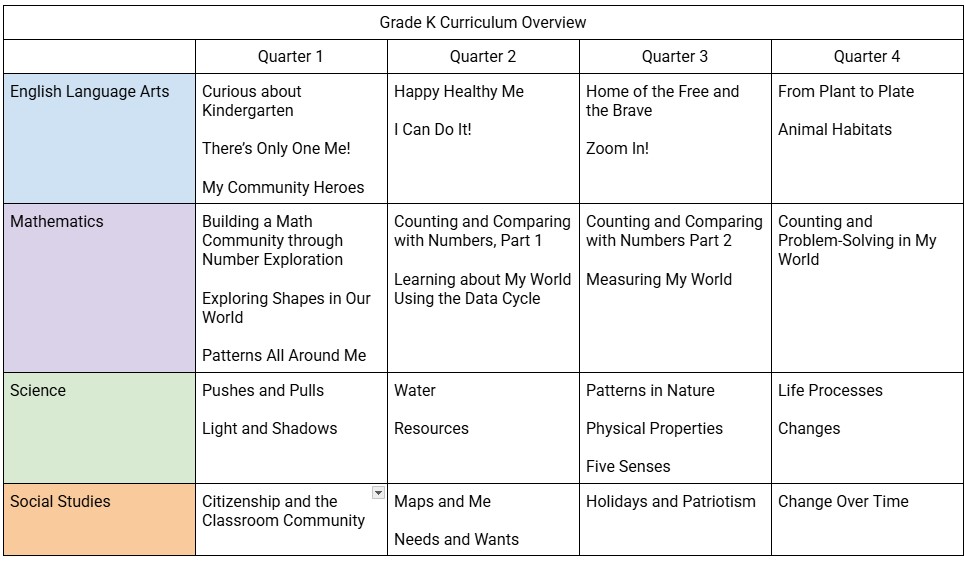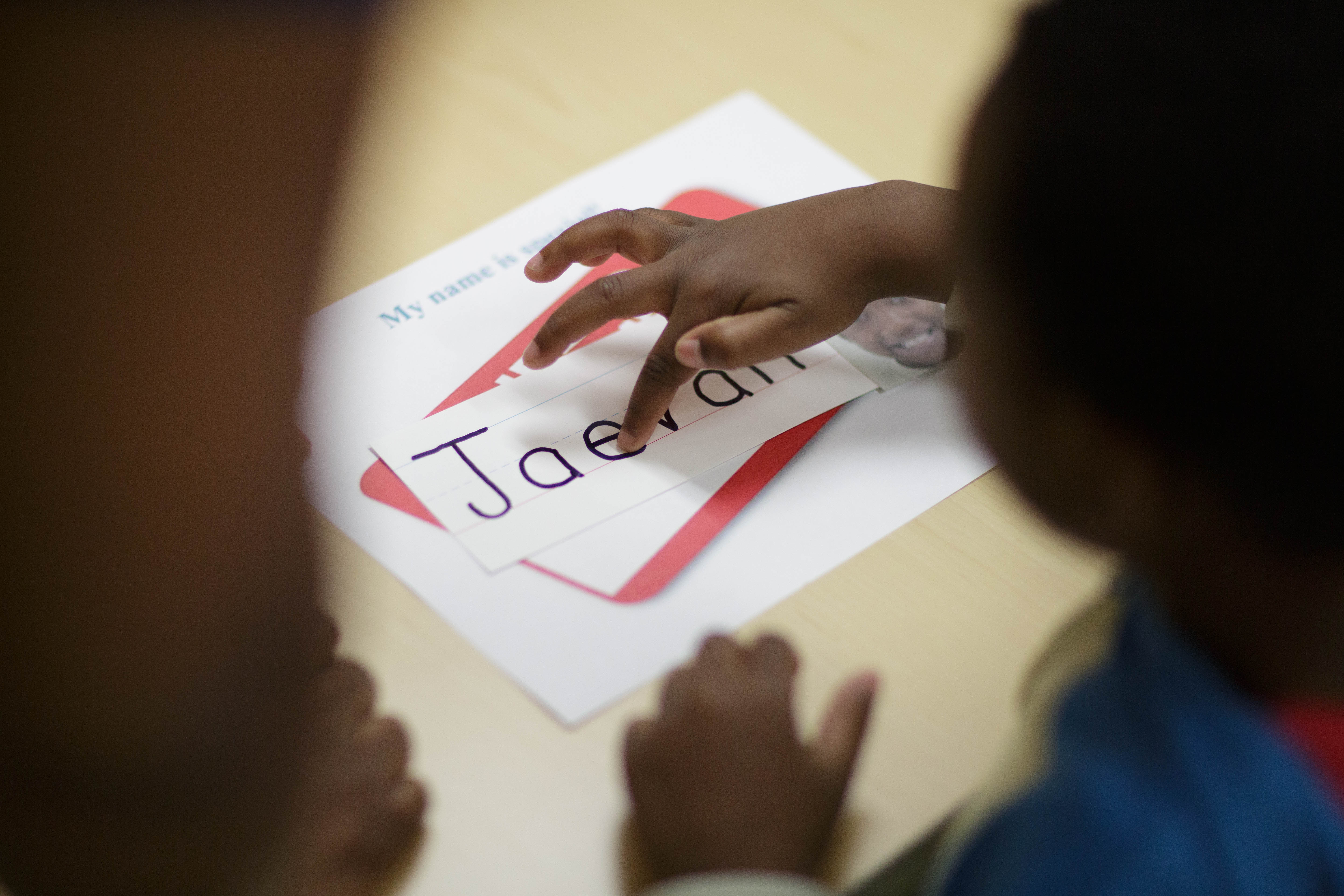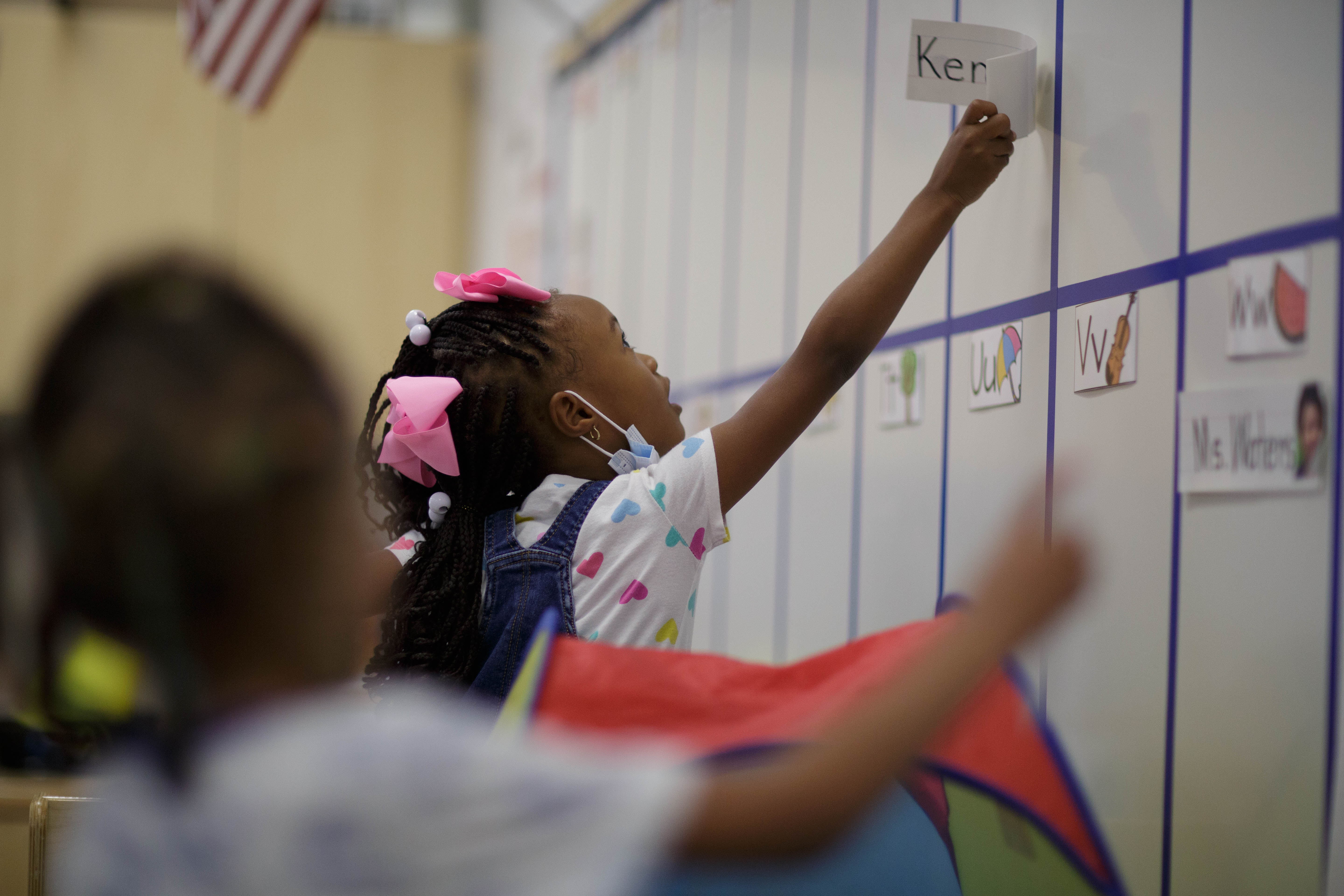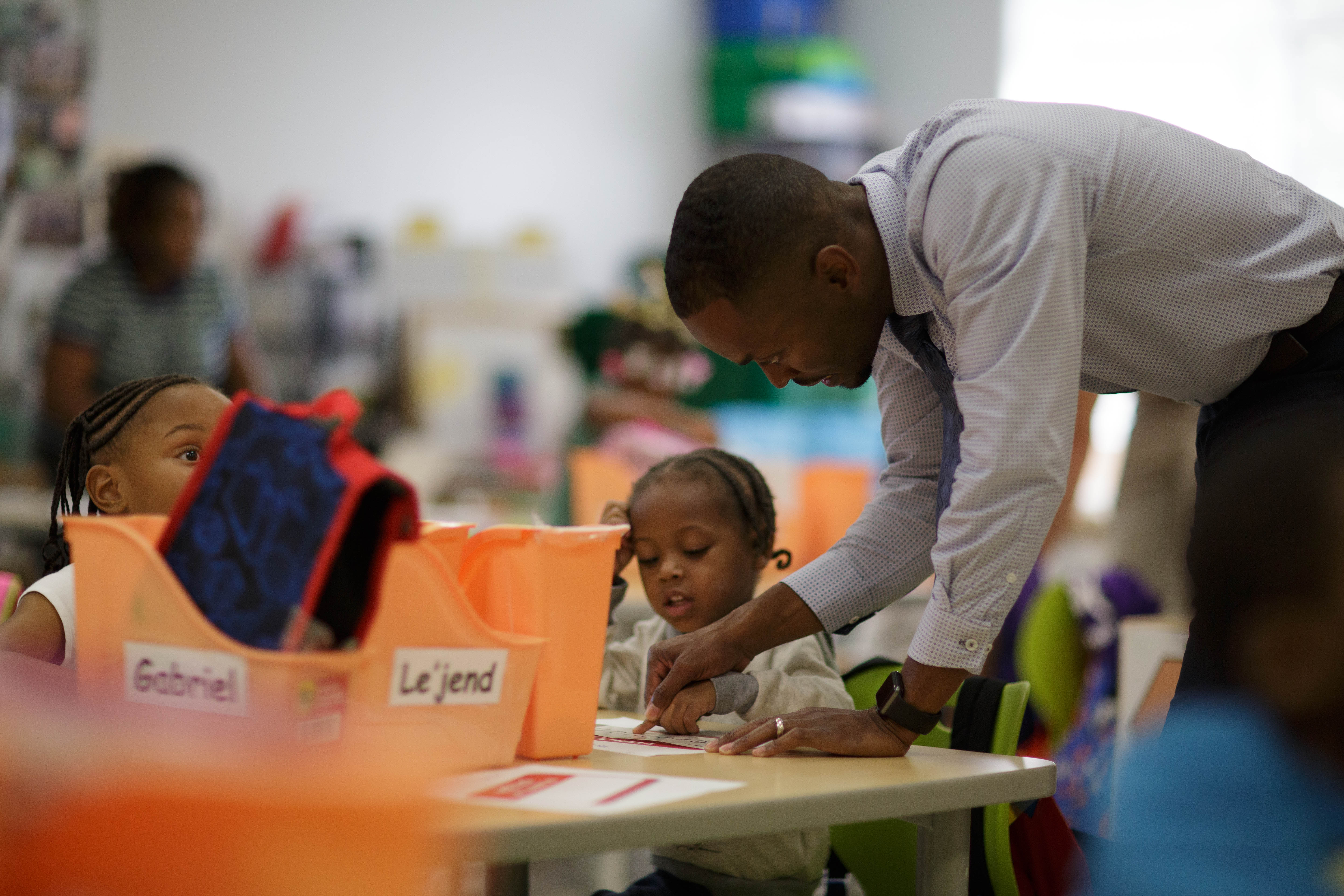
Language Arts
The kindergarten English/Language Arts program focuses on the areas of foundations of reading, vocabulary, reading literary texts, reading informational texts, writing, language usage, communication, and multimodal literacies. Students will be introduced to a wide variety of literary and informational literature which will serve as a basis for instruction and practice in phonics, vocabulary, comprehension, fluency and writing.
Foundations of Reading
- Orally identifies and produces various phonemes to develop phonemic awareness.
- Applies phonetic principles to read and spell words.
Vocabulary
- Builds vocabulary and word knowledge.
Reading Literacy texts
- Uses textual evidence to demonstrate comprehension of a variety of literary texts.
Reading Informational texts
- Uses textual evidence to demonstrate comprehension of a variety of informational texts.
Writing and Language Usage
- Prints legibly in manuscript.
- Writes in a variety of forms.
- Uses conventions of Standard English when speaking and writing.
Communication and Multimodal Literacies
- Develops effective oral communication and collaboration skills.
- Conducts research to answer questions or solve problems.
Click here for a detailed storyboard for Kindergarten English Language Arts
Click here for more about the Virginia Standards of Learning for Kindergarten Language Arts

Mathematics
The kindergarten mathematics program has an emphasis on the development of number sense. Throughout the year, students will discover the various meanings, uses and representations of numbers. As students develop an understanding of numbers, they will begin to explore their application in geometry, measurement, and data collection. The foundations for computational fluency are established as students use numbers to represent the composition and decomposition of quantities. Students will begin to recognize and identify repeating patterns.
Numeration and Computation
- Utilize flexible counting strategies to determine and describe quantities up to 100.
- Identify, represent, and compare quantities up to 30.
- Model and solve single-step contextual problems using addition and subtraction with whole numbers within 10.
Geometry and Measurement
- Reason mathematically by making direct comparisons between two objects or events using attributes of length, height, weight, volume, and time.
- Identify, describe, name, compare, and construct plan figures.
- Describe the units of time represented in a calendar.
Probability and Statistics
- Apply the data cycle with a focus on object graphs and picture graphs.
Patterns, Functions, and Algebra
- Identify, describe, extend, and create simple repeating patterns using various representations.
Click here for a detailed storyboard for Kindergarten Mathematics
Click here for more about the Virginia Standards of Learning for Kindergarten Mathematics

Science
Scientific and engineering practices are developed within each unit of study. Students will use their five senses to investigate and understand the world through active discovery. As students learn more about the world around them, the emphasis will be on recognizing patterns and changes through explorations and investigations.
Force, Motion, and Energy
- Observe the effects of pushes and pulls on an object
- Investigate the effects of various different strengths or directions of pushes or pulls on the motion of an object
Matter
- Observe and describe the various physical properties of objects
- Describe where water can be found, how water flows, how water can move and change phases, and the ways in which water can be useful
Living Systems and Processes
- Identify and describe the five basic senses and their associated body structure
- Differentiate between living and nonliving things
- Describe the basic needs of plants and animals
- Identify basic changes which occur during the life cycles of plants and animals
Earth and Space Systems
- Describe how shadows occur
- Identify the sun as a source of light and heat energy
- Identify patterns in nature, including those occurring in weather, day and night, and seasonal changes
-
Investigate changes in living and non-living things which occur over time and can be measured and observed
Earth Resources
- Understand that humans use resources
- Identify the ways that materials and objects can be recycled or reused
Click here for a detailed storyboard for Kindergarten Science
Click here for more information about the Standards of Learning in Kindergarten Science

Social Studies
In kindergarten, students learn social studies concepts through the integrated language arts curriculum that build a foundation for learning independently and cooperatively with others. The focus in kindergarten social studies is developing a concept of self.
Civics
- Describe the role of individuals in communities
- Recognize the significance of symbols that unify Americans (American flag, Pledge of Allegiance)
Economics
- Explain why people make economic choices
- Describe how different jobs serve the community
Geography
- Describe relative location by using positional words (near, far; above, below)
- Recognize basic map and globe elements
- Explain the purpose of maps
History
- Recognize that everyday life today is different from everyday life long ago
- Describe choices made by people from the past brought about change
- Identify local historical events, stories and narratives that describe the development of the community
Click here for a detailed storyboard for Kindergarten Social Studies
